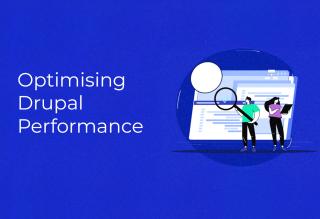Introduction
Drupal, a powerful and flexible content management system (CMS), offers a robust platform for creating dynamic and engaging websites. However, implementing strong SEO strategies is crucial to maximise your website's visibility and attract organic traffic. This blog post will delve into essential SEO tips and best practices tailored explicitly for Drupal.

Understanding Drupal's SEO-Friendly Features
Drupal is inherently SEO-friendly, offering a range of features that can significantly boost your website's search engine rankings. Some of the key SEO-friendly features include:
-
Clean URL Structure: Drupal allows you to create clean and readable URLs, essential for user experience and optimisation of search engine.
-
Meta Tag Management: You can easily manage meta titles, meta descriptions, and other meta tags to optimise your content for specific keywords.
-
XML Sitemap Generation: Drupal can automatically generate XML sitemaps, which help search engines discover and index your website's pages.
-
Robust Content Authoring: Drupal's flexible content authoring capabilities enable you to create high-quality, keyword-rich content that appeals to users and search engines.
Essential SEO Tips for Drupal
1. Keyword Research and Optimisation:
-
Conduct thorough keyword research to identify relevant keywords and phrases your target audience is searching for.
-
Incorporate these keywords naturally into your content, including titles, headings, meta descriptions, and body text.
-
Use relevant keywords in your image alt text and file names.
2. URL Structure:
-
Create clean and concise URLs that include relevant keywords.
-
Use hyphens to separate words in your URLs.
-
Avoid using dynamic URLs with session IDs or query strings.
3. Meta Tags:
-
Write compelling meta titles and descriptions that accurately describe your content and entice users to click.
-
Keep your meta titles concise and keyword-rich.
-
Craft informative and engaging meta descriptions.
4. Image Optimisation:
-
Compress images to reduce file size and improve page load speed.
-
Use descriptive file names and alt text for images.
-
Optimise image dimensions to match your website's layout.
5. Internal Linking:
-
Strategically link to relevant pages within your website to improve navigation and distribute link equity.
-
Use anchor text that includes relevant keywords.
6. External Linking:
-
Build high-quality backlinks from reputable websites to enhance your website's authority.
-
Focus on building natural and organic backlinks.
7. Mobile Optimisation:
-
Ensure your Drupal website is fully responsive and optimised for mobile devices.
-
Test your website's mobile performance and fix any issues.
8. Site Speed:
-
Optimise your website's loading speed by minifying CSS and JavaScript files, leveraging browser caching, and optimising images.
-
Use a reliable hosting provider to ensure optimal performance.
9. XML Sitemap:
-
Generate an XML sitemap to help search engines discover and index your website's pages.
-
Submit your XML sitemap to Google Search Console and Bing Webmaster Tools.
10. Robots.txt:
Use a robots.txt file to instruct search engine crawlers which pages to index and which to avoid.
Leveraging Drupal Modules for SEO

Drupal offers a rich ecosystem of modules that can further enhance your website's SEO. Some of the most popular SEO modules include:
-
Pathauto: Automatically generates clean URLs based on your content.
-
Metatag: Provides granular control over meta tags for each page.
-
XML Sitemap: Generates XML sitemaps for easy indexing.
-
Real-time SEO Check: Provides real-time SEO analysis and recommendations.
Conclusion
Following these SEO tips and leveraging Drupal's powerful features can significantly improve your website's visibility and drive organic traffic. Remember to regularly monitor your website's performance and make adjustments to stay ahead of the competition.
Power CMS Technology is a leading Drupal agency specialising in Drupal development, migration, customisation, and upgrade. We can help you implement effective SEO strategies to maximise your website's potential. Contact us today to learn more.



